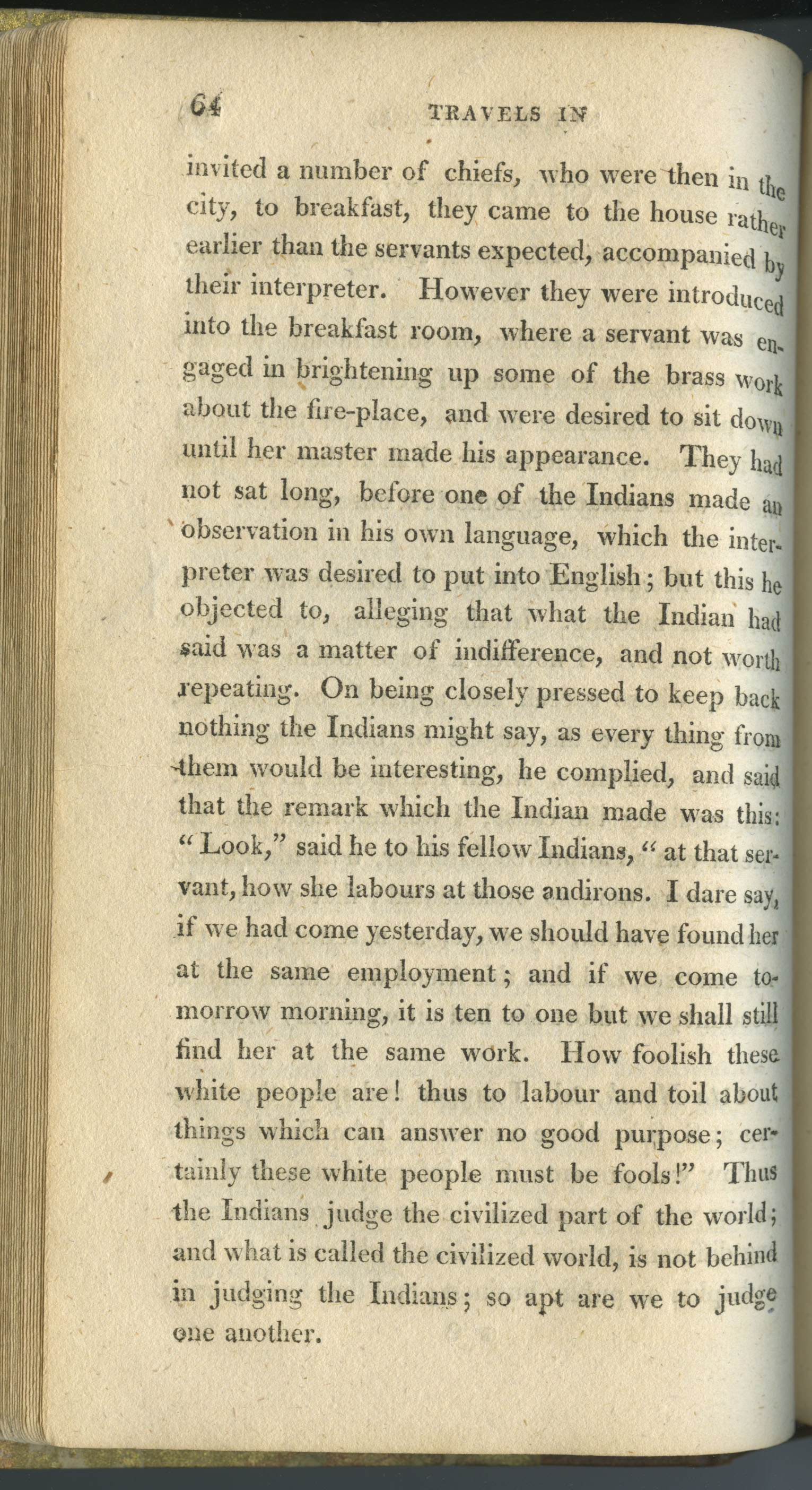invited a number of chiefs, who were then in the
city, to
breakfast, they came to the house rather
earlier than the servants
expected, accompanied by
their interpreter. However they were
introduced
into the breakfast room, where a servant was en-
gaged in
brightening up some of the brass work
about the fire-place, and were
desired to sit down
until her master made his appearance. They had
not
sat long, before one of the Indians made an
observation in his own
language, which the inter-
preter was desired to put into English; but this
he
objected to, alledging that what the Indian had
said was a matter
of indifference, and not worth
repeating. On being closely pressed to keep
back
nothing the Indians might say, as every thing from
them would be
interesting, he complied, and said
that the remark which the Indian made
was this:
Look, said he to his fellow Indians, at that ser-
vant, how she
labours at those andirons. I dare say,
if we had come yesterday, we
should have found her
at the same employment; and if we come to-
morrow morning it is ten to one but we shall still
find her at the same
work. How foolish these
white people are! thus to labour and toil
about
things which can answer no good purpose; cer-
tainly these
white people must be fools! Thus
the Indians judge the civilized
part of the world;
and what is called the civilized world, is not
behind
in judging the Indians; so apt are we to judge
one another.

